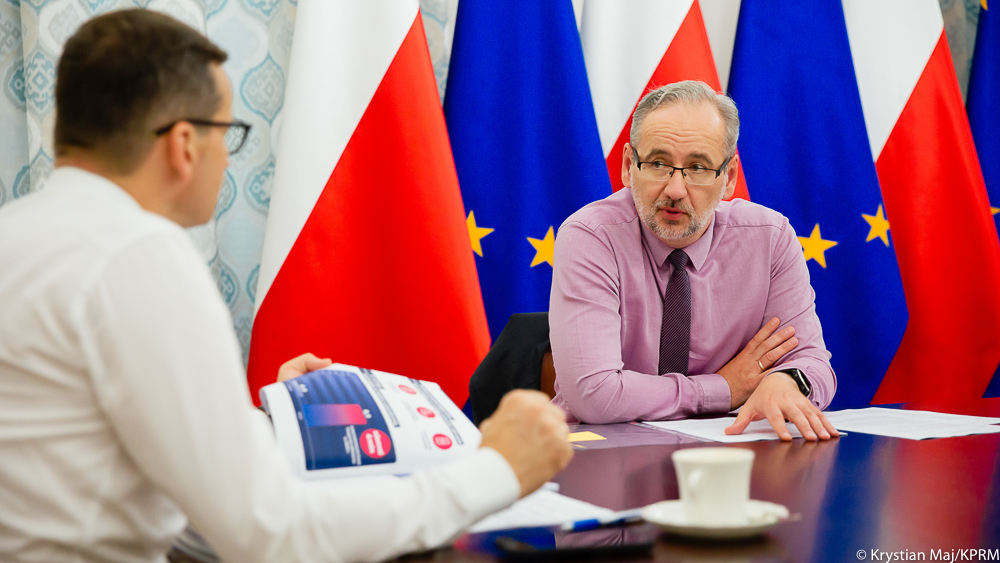Poland is introducing fines of up 30,000 zloty (around €6,600) for people who conceal information relating to COVID-19, such as whom they have had contact with.
“The concealment of information” is one of the “greatest weaknesses” in fighting the epidemic, said the health minister today. The new fines are intended as “a kind of deterrent to discourage people from lying”, added Adam Niedzielski, speaking to the Polish Press Agency (PAP).
Meanwhile, the minister also reiterated that, with coronavirus cases in Poland currently low, schools are set to resume with in-person teaching in September. But if infections rise, then regional restrictions will be put in place, especially in areas with lower vaccination rates.
Justifying the new level of fines, Niedzielski said that containing the pandemic depends on the ability of the sanitary services to properly conduct investigations into infections, which is hindered when untruthful information is given.
For the same reason, the maximum length of quarantine permitted under the act on combating infectious diseases is to be increased from 21 to 30 days, said the minister.
Despite Poland’s vaccination rollout slowing over recent weeks, Niedzielski noted that the continued low number of new cases shows that there is a “natural barrier” at work. Poland currently has the lowest infection rate in the European Union, although it also tests less than most countries.
Since having a severe third wave in spring, Poland has kept infection rates extremely low since May pic.twitter.com/3cbFcwPu0y
— Daniel Tilles (@danieltilles1) August 18, 2021
“Even if the number of infections escalates to several thousand a day – because those are the blackest scenarios – it will not translate into hospitalisations and deaths, as during previous waves,” assured Niedzielski.
The government estimates that the hospitalisation rate will be 40% lower this time around. As a result, restrictions, which “were primarily a method to prevent overloading the hospital infrastructure”, may be introduced at higher levels of infections than before, Niedzielski told Wirtualna Polska on Tuesday.
Asked about whether the government would introduce compulsory vaccination, the minister said that it was “talking about” the issue but would first seek to exhaust all other forms of “soft persuasion and incentives”.
In June, the Polish health ministry began telephoning people who have not yet registered for a COVID-19 vaccination and launched a lottery in which fully vaccinated people can win prizes of up to a million zloty (€220,000).
Though some officials have spoken in support of a so-called “French model”, whereby non-vaccinated people would be denied entry to venues such as restaurants and cinemas, the government has so far said it is seeking to avoid such a scenario.
Niedzielski this week also repeated that the government is considering introducing regional lockdowns rather than a national one in the event of a fourth wave. The level of restrictions would depend in part on local vaccination rates, meaning that the eastern provinces of Podkarpackie, Lubelskie, Podlaskie, Warmińsko-Mazurskie and Świętokrzyskie would be most at risk.
Main image credit: Krystian Maj/KPRM/Flickr (under CC BY-NC-ND 2.0)

Maria Wilczek is deputy editor of Notes from Poland. She is a regular writer for The Times, The Economist and Al Jazeera English, and has also featured in Foreign Policy, Politico Europe, The Spectator and Gazeta Wyborcza.




















